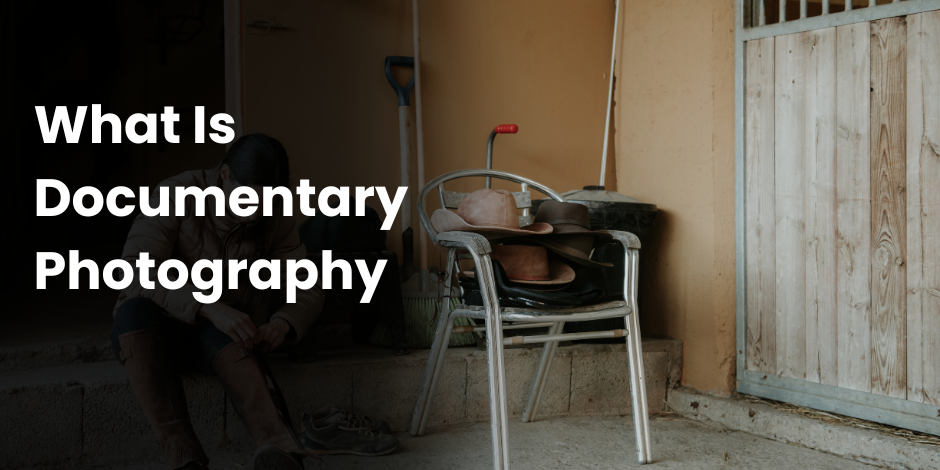Documentary photography is a genre of photography that aims to capture and document real-life events, situations, and subjects in a candid and objective manner. Unlike other forms of photography that may involve staging or manipulating scenes, documentary photography is all about showcasing reality in its purest form. Through powerful images, documentary photographers tell stories, raise awareness about social issues, and provide valuable insight into various aspects of the world we live in.
The History of Documentary Photography:
Documentary photography has a rich and fascinating history that dates back to the early days of photography. The genre gained popularity in the late 19th and early 20th centuries when photographers like Lewis Hine and Jacob Riis used their cameras to shed light on the harsh living and working conditions faced by immigrants and laborers in the United States. These early pioneers of documentary photography used their images to advocate for social change and bring attention to important social issues.
In the years that followed, documentary photography continued to evolve and expand its scope. During the Great Depression, photographers like Dorothea Lange captured powerful images of impoverished Americans struggling to survive, while during World War II, photographers like Robert Capa documented the horrors of war on the front lines. In the decades that followed, documentary photographers like Sebastião Salgado and James Nachtwey continued to use their cameras to highlight social injustices and human rights abuses around the world.

The Characteristics of Documentary Photography:
One of the key characteristics of documentary photography is its emphasis on capturing reality as it is. Documentary photographers strive to create images that are honest, authentic, and unfiltered. They do not manipulate or stage scenes, but instead aim to capture genuine moments and emotions in their purest form. This commitment to truth and authenticity is what sets documentary photography apart from other forms of photography.
Another important characteristic of documentary photography is its focus on storytelling. Documentary photographers use their images to tell powerful and compelling stories that can have a lasting impact on viewers. Whether they are documenting the lives of refugees, the effects of climate change, or the struggles of marginalized communities, documentary photographers have the ability to shine a light on important social issues and provoke meaningful conversations.
The Role of Documentary Photography in Society:
Documentary photography plays a crucial role in society by providing a visual record of real-life events and situations. By documenting important moments in history, capturing social injustices, and shedding light on marginalized communities, documentary photographers help to create a more informed and empathetic society. Their images have the power to inspire change, raise awareness, and spark meaningful conversations about the world we live in.
In addition to its role as a tool for social change, documentary photography also serves as a form of artistic expression. Many documentary photographers approach their work with a creative eye, using composition, lighting, and framing to create visually stunning images that resonate with viewers on an emotional level. Through their artistry, documentary photographers can evoke powerful emotions and provoke thought-provoking reactions from their audience.

Tips for Aspiring Documentary Photographers:
If you are interested in pursuing documentary photography, there are a few key tips to keep in mind. First and foremost, it is essential to approach your work with empathy and respect for your subjects. Remember that you are telling their stories, and it is important to do so with sensitivity and compassion.
Secondly, be prepared to invest time and effort into your photography. Documenting real-life events and situations can be challenging and unpredictable, so it is important to be patient and persistent in your work. Take the time to build relationships with your subjects, immerse yourself in their world, and truly understand the stories you are trying to tell.
Lastly, always prioritize authenticity and truth in your work. Avoid staging or manipulating scenes, and strive to capture real moments and emotions as they unfold. Remember that documentary photography is about showcasing reality in its purest form, so stay true to the essence of the genre in your images.
Conclusion:
Documentary photography is a powerful and important genre of photography that has the ability to inform, inspire, and provoke change. By capturing real-life events, telling compelling stories, and shining a light on important social issues, documentary photographers play a crucial role in creating a more empathetic and understanding society. Through their images, they document history, amplify voices, and provide valuable insight into the diverse and complex world we live in. Whether you are an aspiring documentary photographer or a photography enthusiast, take the time to appreciate the impact and significance of documentary photography in our society.
FAQs
What is documentary photography?
Documentary photography is a genre of photography that aims to capture candid moments and events in a truthful and objective manner. It typically involves telling a story or conveying a message about a particular subject or issue through visual imagery.
How does documentary photography differ from other types of photography?
Unlike other types of photography that may focus on aesthetics or artistic expression, documentary photography prioritizes authenticity and journalistic integrity. It often involves photographing real-life situations and events as they unfold, without manipulation or staging.
What are the key characteristics of documentary photography?
– Authenticity: Documentary photographs aim to present a true and accurate representation of the subject matter.
– Objectivity: Documentary photographers strive to maintain impartiality and avoid imposing their own biases or interpretations on the images.
– Narrative: Documentary photography often tells a story or conveys a message about a particular subject or issue.
– Social or Historical Significance: Documentary photographs may document significant events, cultures, or social issues, providing a visual record for future generations.
How does documentary photography contribute to society?
Documentary photography plays a crucial role in raising awareness about social, political, and environmental issues. By capturing compelling images of real-life events and situations, it can evoke empathy, spark conversations, and inspire action for positive change.
What subjects are commonly explored in documentary photography?
Documentary photographers may focus on a wide range of subjects, including but not limited to social issues such as poverty, homelessness, and inequality; environmental issues such as climate change, pollution, and conservation efforts; cultural practices, traditions, and lifestyles; and historical events or significant moments in time.
Can documentary photography be staged or manipulated?
While documentary photography aims to capture authentic moments, there may be instances where photographers stage or manipulate scenes for artistic or narrative purposes. However, such practices should be disclosed transparently, and photographers should strive to maintain the integrity of the images and the story they are telling.
How can someone get started in documentary photography?
Getting started in documentary photography requires a combination of technical skills, storytelling abilities, and a passion for exploring and documenting the world around you. Beginners can begin by familiarizing themselves with the basics of photography, studying the work of renowned documentary photographers, and practicing their skills by capturing everyday moments and events in their communities. Additionally, joining photography workshops, classes, or online communities can provide valuable support and feedback.













